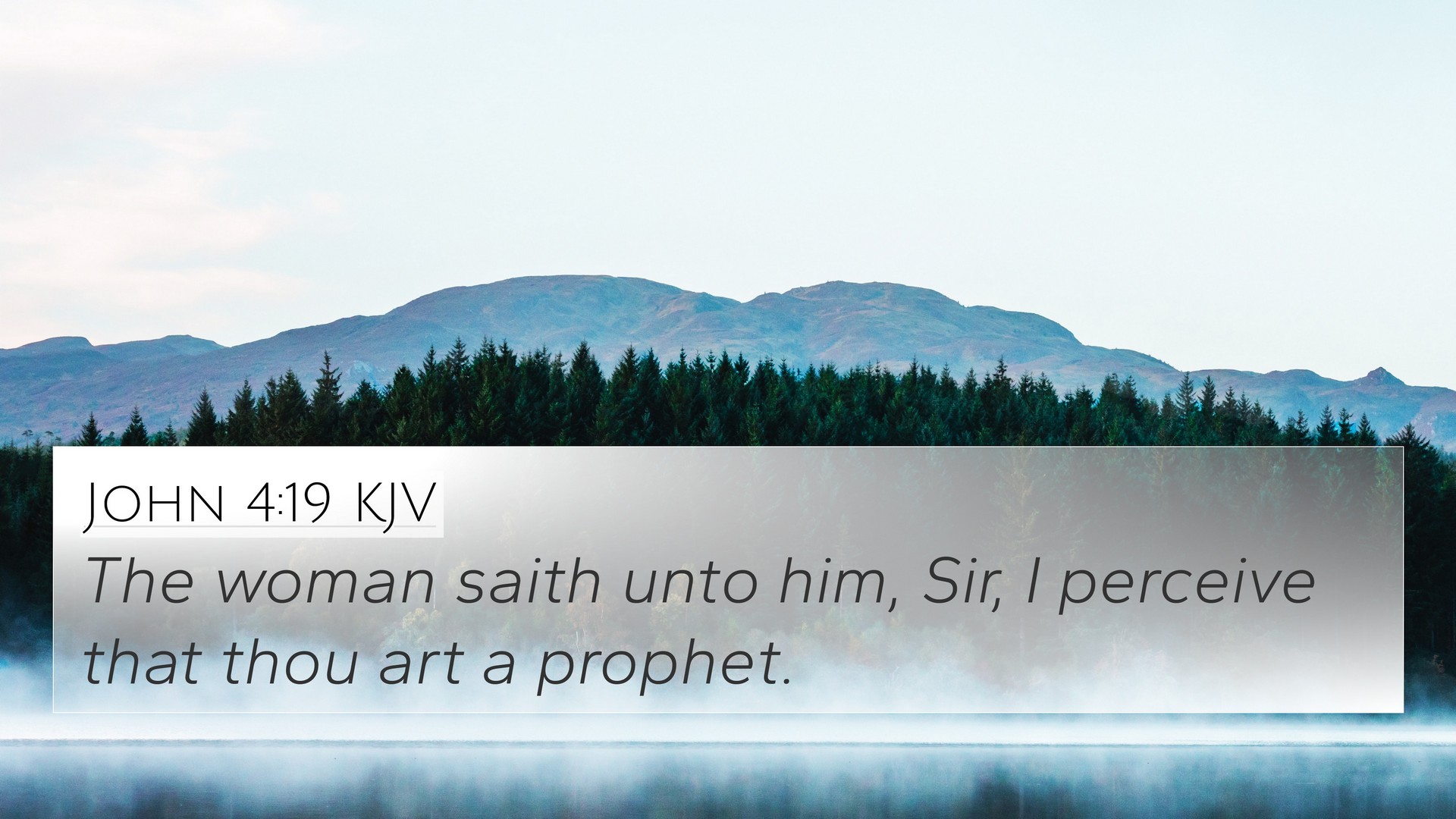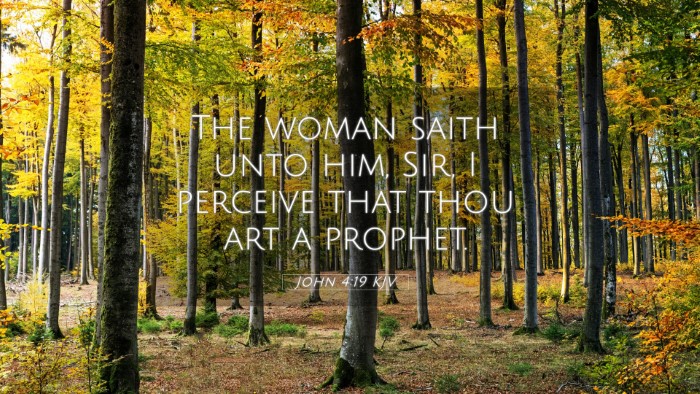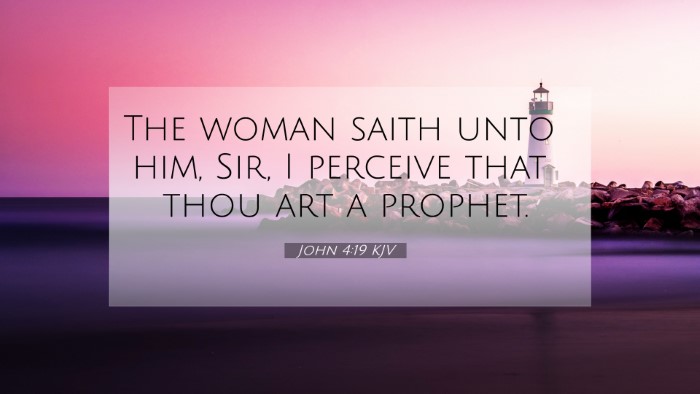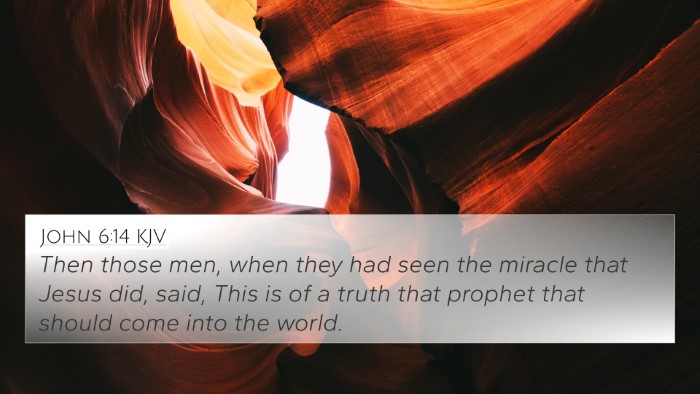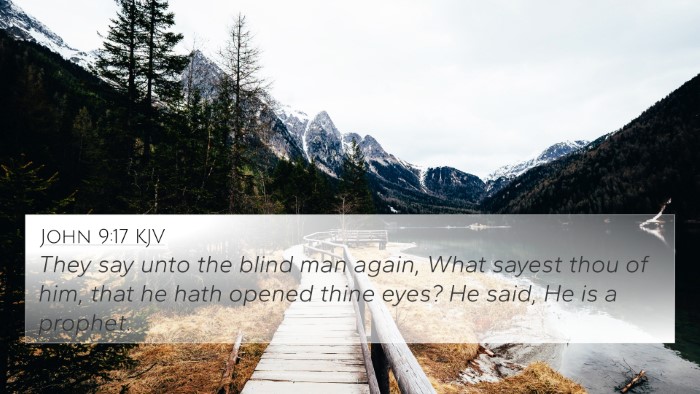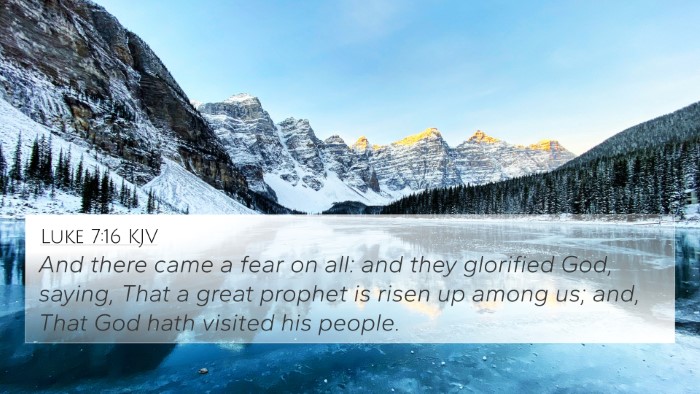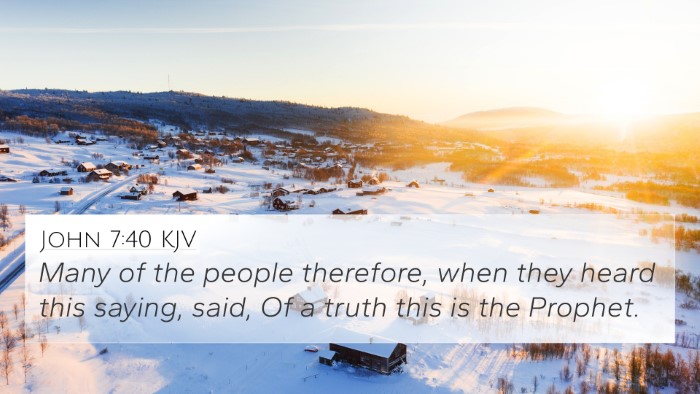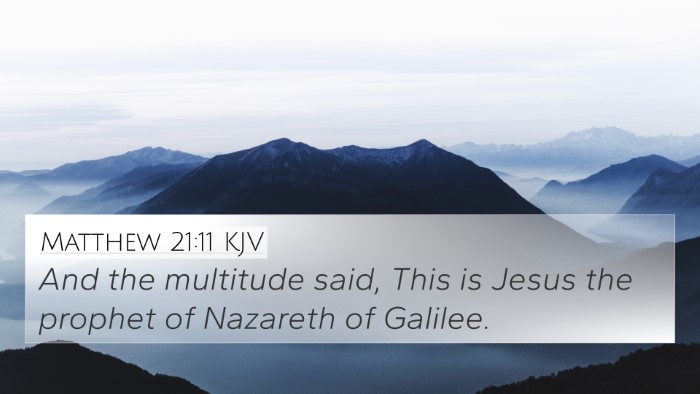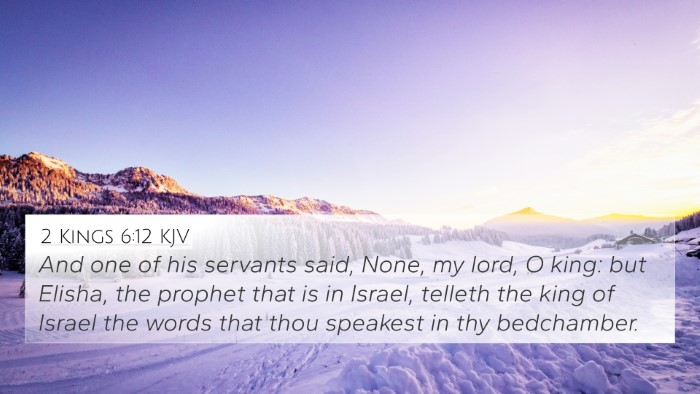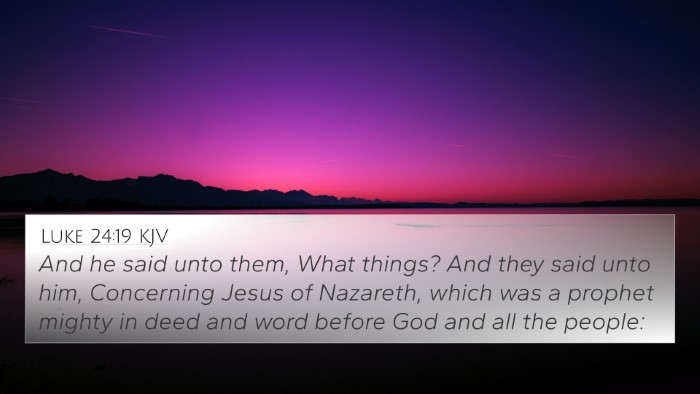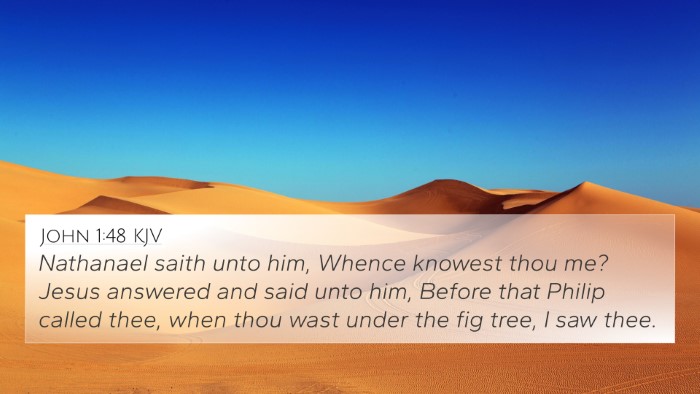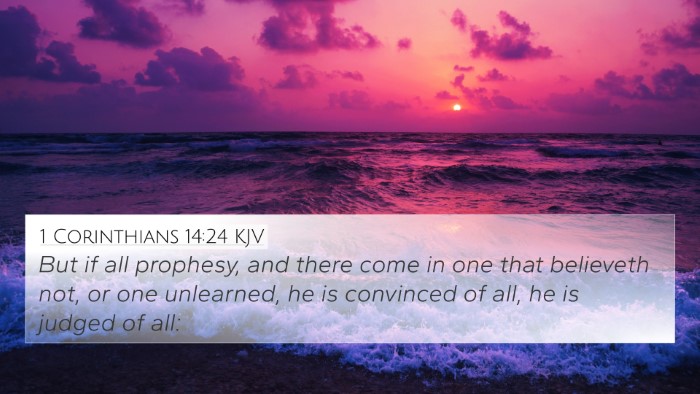Understanding John 4:19
In John 4:19, the Samaritan woman at the well expresses her awareness of Jesus' prophetic insight by saying, "Sir, I perceive that you are a prophet." This statement opens a profound dialogue between her and Jesus, leading to deeper theological revelations.
Commentary Insights
Matthew Henry's Commentary
Matthew Henry highlights that the woman's acknowledgment of Jesus as a prophet reveals her understanding of spiritual truth. She recognizes that he possesses knowledge beyond ordinary means, which positions her to receive profound teachings about worship and the nature of God.
Albert Barnes' Commentary
Albert Barnes elaborates on the woman's perspective, suggesting that she was struck by Jesus' ability to perceive her life circumstances without prior knowledge. This moment serves as a catalyst for discussing the nature of true worship, shifting from traditional practices to a more personal and spirit-led engagement with God.
Adam Clarke's Commentary
Adam Clarke emphasizes the significance of the woman's perception of Jesus as a prophet. It indicates her openness to learn and inquire further about spiritual matters. Clarke notes that her subsequent questions reveal her desire for understanding, illustrating the theme of the enlightening nature of divine encounters.
Key Themes and Connections
This verse serves not only as a pivotal moment in the conversation between Jesus and the Samaritan woman but also stands as a testament to the relational understanding of worship in the New Testament. Below are some important themes drawn from this interaction:
- Recognition of Prophetic Insight: The Samaritan woman recognizes Jesus' divine ability to understand her life, drawing a parallel to other biblical figures who encountered the divine (e.g., Moses and Samuel).
- Transformation Through Revelation: This encounter leads to the woman's transformation, reflecting how personal revelations can lead to broader witness (John 4:29).
- Worship in Spirit and Truth: This theme is emphasized later in the conversation (John 4:24), contrasting with previous religious traditions.
- The Role of Women in the Gospel: The importance of the woman's testimony highlights the inclusive nature of Jesus' ministry.
Bible Verse Cross-References
John 4:19 connects with several other scriptures, enhancing our understanding through thematic Bible verse connections:
- John 1:45 – Philip finding Nathanael and declaring, "We have found him, of whom Moses in the law, and the prophets, did write."
- Matthew 21:11 – The crowds calling Jesus "the prophet of Nazareth."
- Luke 4:24 – Jesus stating, "No prophet is accepted in his own country."
- John 7:40 – The people expressing different opinions about Jesus, some acknowledging him as the Prophet.
- Acts 3:22 – Referring to Moses' prophecy of a Prophet like him, pointing to Jesus.
- Hebrews 1:1-2 – God speaking through prophets in the past but now through His Son.
- 2 Peter 1:21 – The origin of prophecy, emphasizing divine inspiration.
Comparative Bible Verse Analysis
Through comparative analysis, John 4:19 can be seen in dialogue with various other scriptures that speak to prophetic identity and divine authority. The links between Old and New Testament teachings are evident as we explore the continuity of God's revelation.
Scriptural Cross-Referencing Tools
To fully appreciate the interconnectedness within scripture, consider using these tools for effective Bible cross-referencing:
- Bible Concordance: A tool to find specific words and phrases across the Bible.
- Bible Cross-Reference Guide: Systems for locating verses related by theme or context.
- Cross-Reference Bible Study: Methods for examining similar verses across different books.
Conclusion
John 4:19 is not just a moment of recognition; it opens a door to understanding the nature of Christ as a prophet and the shift towards true worship. This verse, with its rich theological implications, encourages exploration of relationships between various biblical texts, inviting believers to engage deeply with the scriptures.
Further Reflections
As we reflect on John 4:19, consider the user's intent to find discernment in the scriptures. Recognition of similar themes or prophecies can illuminate our understanding further. Questions such as "What verses are related to John 4:19?" or "How do this verse and others connect?" become vital in a cohesive study of scripture.
